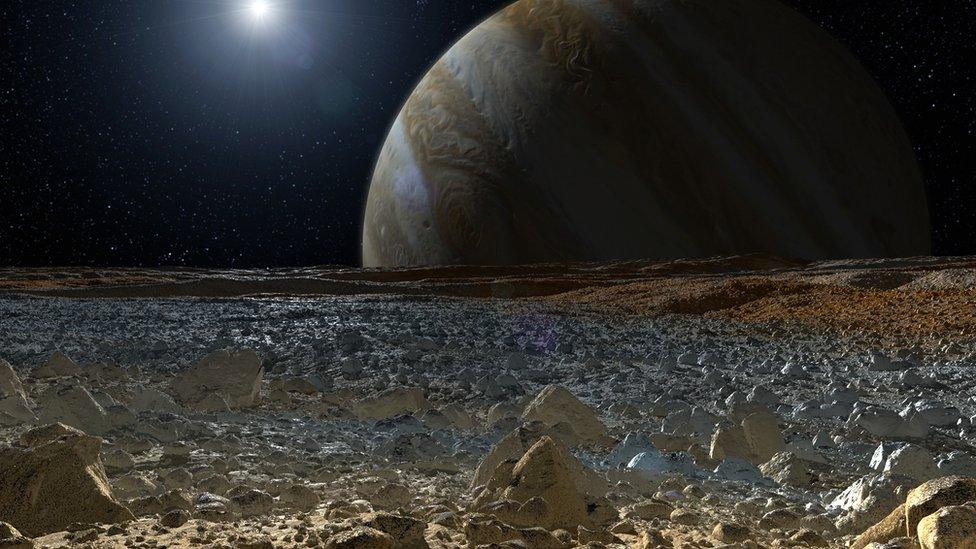Europa: Jupiter's moon may have water where life could exist
- Published
- comments
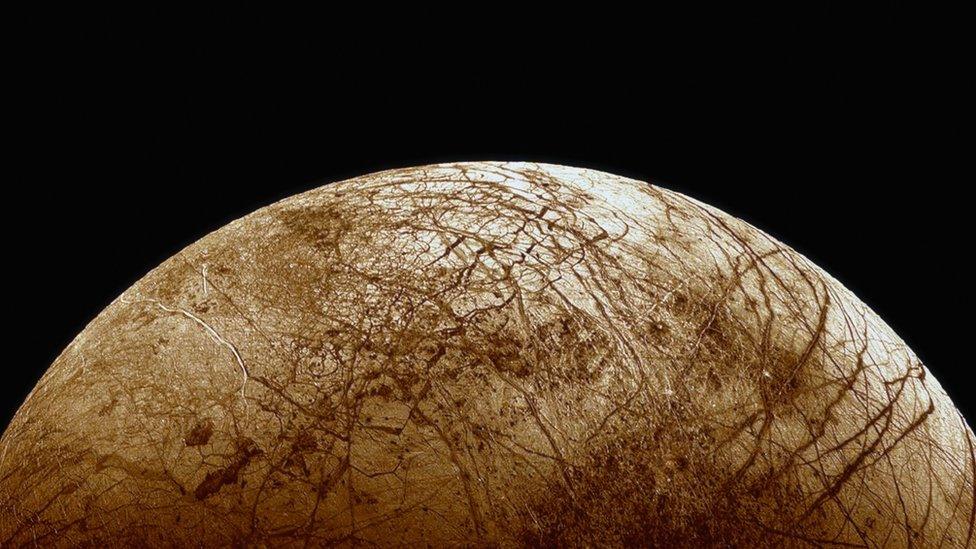
A new study comparing ice sheets found in Greenland to those on the surface of one of Jupiter's moons, has suggested a potential spot for finding life out in space!
Europa is a moon of the giant planet Jupiter, covered in a huge ocean of frozen water.
A team from Stanford University in America have studied frozen ridges found on the surface of Europa, with similar features found on Greenland's ice sheets.
The scientists believe the ridges may have formed in the same way, suggesting there are large amounts of liquid water just under the frozen surface of Europa - and this water could be a good place to find life!
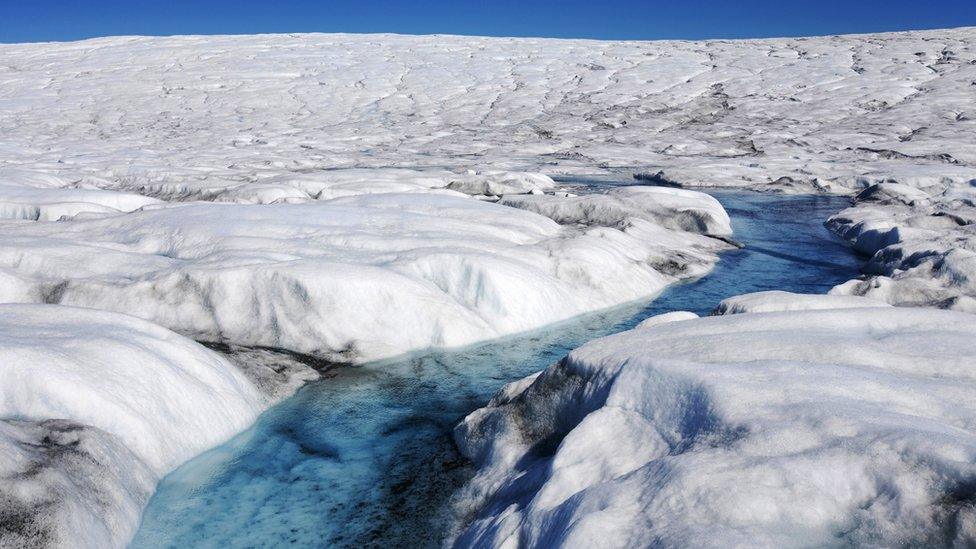
Could ice sheets in Greenland have helped scientists find alien life?
Scientists have long suspected Europa as a good place to host life because of the saltwater ocean deep below the surface of the moon.
Now, they believe that if the ice ridges that appear on Europa formed in a similar way to those in Greenland, then pockets of water may exist just under the frozen surface - and these would be a promising sign in the search for life beyond Earth.
The scientists say the pockets of water would circulate chemicals necessary for life from the icy shell down to the salty ocean far beneath.
According to Nasa there are 79 known moons on Jupiter
Riley Culberg, lead author of the study, explained: "The presence of liquid water in the ice shell would suggest that exchange between the ocean and ice shell is common, which could be important for chemical cycling that would help support life.
"Shallow water in particular also means there might be easier targets for future space missions to image or sample that could at least preserve evidence of life without having to fully access the deep ocean."
Nasa's Europa Clipper mission, due to launch in 2024, will further investigate Europa and whether it has the right conditions suitable for life.
The findings have been published in the journal Nature Communications.
Is there life on Jupiter's moon?
- Published2 November 2021
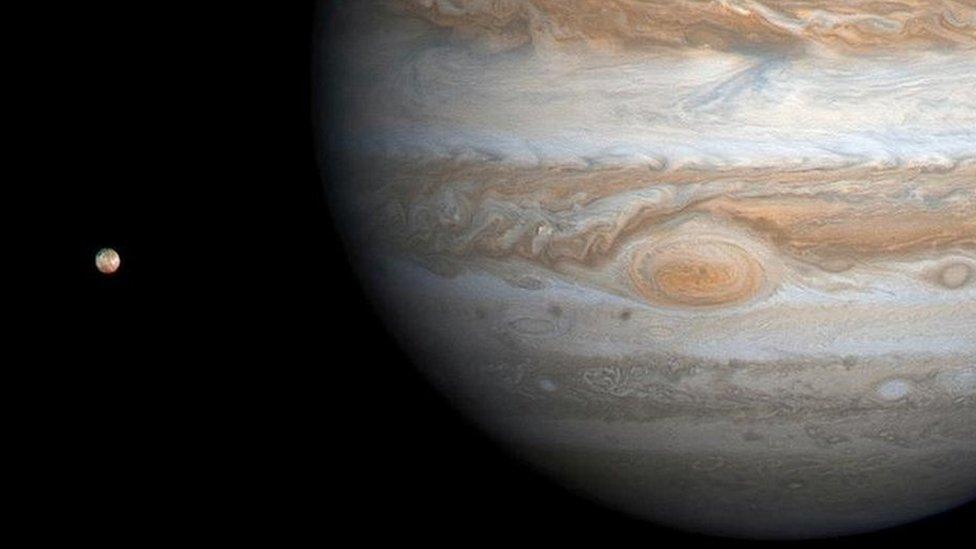
- Published18 May 2021
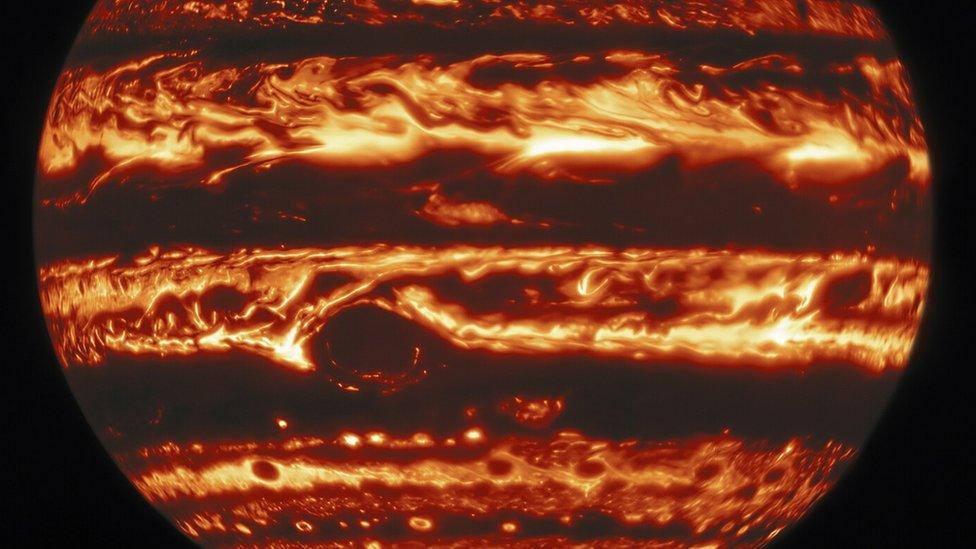
- Published18 June 2019
